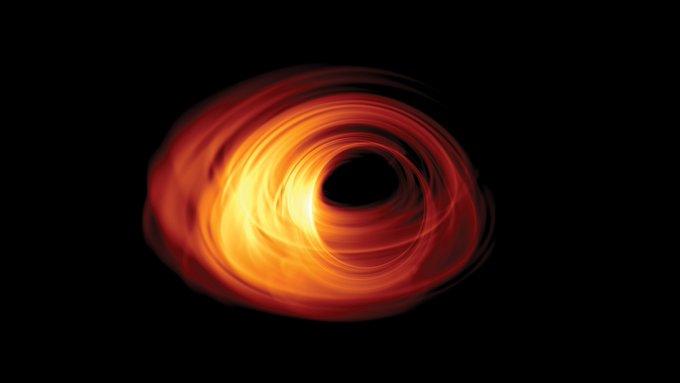
With help from Satori at the MGHPCC, Professor Gaurav Khanna and his team unravel the mysteries surrounding Black Holes.
Read this story at UMass Dartmouth
Black holes are considered amongst the most mysterious objects in the universe. Part of their intrigue arises from the fact that they are considered one of the simplest solutions to Einstein’s field equations of general relativity theory. In fact, black holes can be fully characterized by only three physical quantities: their mass, spin, and charge. Since they have no additional “hairy” attributes to distinguish them from each other, black holes are said to have “no hair”. Simply put, black holes of the same mass, spin, and charge are identical.
Professor Gaurav Khanna (Physics) alongside his former student Dr. Subir Sabharwal and collaborator Dr. Lior Burko of Theiss Research discovered that a special kind of black hole violates black hole uniqueness, the so-called “no hair” theorem. Specifically, the team studied extremal black holes — holes that are “saturated” with the maximum charge or spin they can possibly carry. They found that there is a quantity that can be constructed from the spacetime curvature at the black hole horizon that is conserved, and measurable by a distant observer. Since this quantity depends on how the black hole was formed, and not just on the three classical attributes, it violates black hole uniqueness.
“This new result is surprising,” said Burko, “because the black hole uniqueness theorems are well established, and their extension to extreme black holes. There has to be an assumption of the theorems that are not satisfied, to explain how the theorems do not apply in this case.” Indeed, the team followed on previous work, which found that even though external perturbations of extreme black holes decay as they do also for regular black holes, along the event horizon certain perturbation fields evolve in time indefinitely. “The uniqueness theorems assume time independence. But the Aretakis phenomenon explicitly violates time independence along the event horizon. This is the loophole through which the hair can pop out and be combed at a great distance by a gravitational wave observatory,” said Burko.
The team used very intensive numerical simulations to generate their results. The simulations involved using dozens of the highest-end Nvidia graphics-processing-units (GPUs) with over 5,000 cores each, in parallel. “Each of these GPUs can perform as many as 7 trillion calculations per second; however, even with such computational capacity the simulations look many weeks to complete,” said Khanna.
The research was partially funded by the National Science Foundation and the Office of Naval Research. Computational resources of UMass Dartmouth's Center for Scientific Computing & Visualization Research (CSCVR) were utilized for the research work. The CSCVR promotes the mission of UMass Dartmouth by providing undergraduate and graduate students with high-quality discovery-based educational experiences that transcend the traditional boundaries of academic field or department, and foster collaborative research in the computational sciences within the University and with researchers at other universities, National Labs, and industry. Khanna serves as the Co-Director of the Center.
Story image: A simulated image of a black hole - Image Credit: Bronzwaer, Moscibrodzka, Davelaar and Falcke, Radboud University 2017.
Lior M. Burko, Gaurav Khanna, and Subir Sabharwal (2021), Scalar and gravitational hair for extreme Kerr black holes, Physical Review D, doi: 10.1103/PhysRevD.103.L021502
Don't tell Einstein, but Black Holes Might Have ‘Hair’ Wired
In Violation of Einstein, Black Holes Might Have ‘Hair’ Quanta Magazine
Could gravitational-wave detectors spot hairy black holes? PhysicsWorld
MGHPCC Research Awarded Time on Fastest Supercomputer in the US MGHPCC News